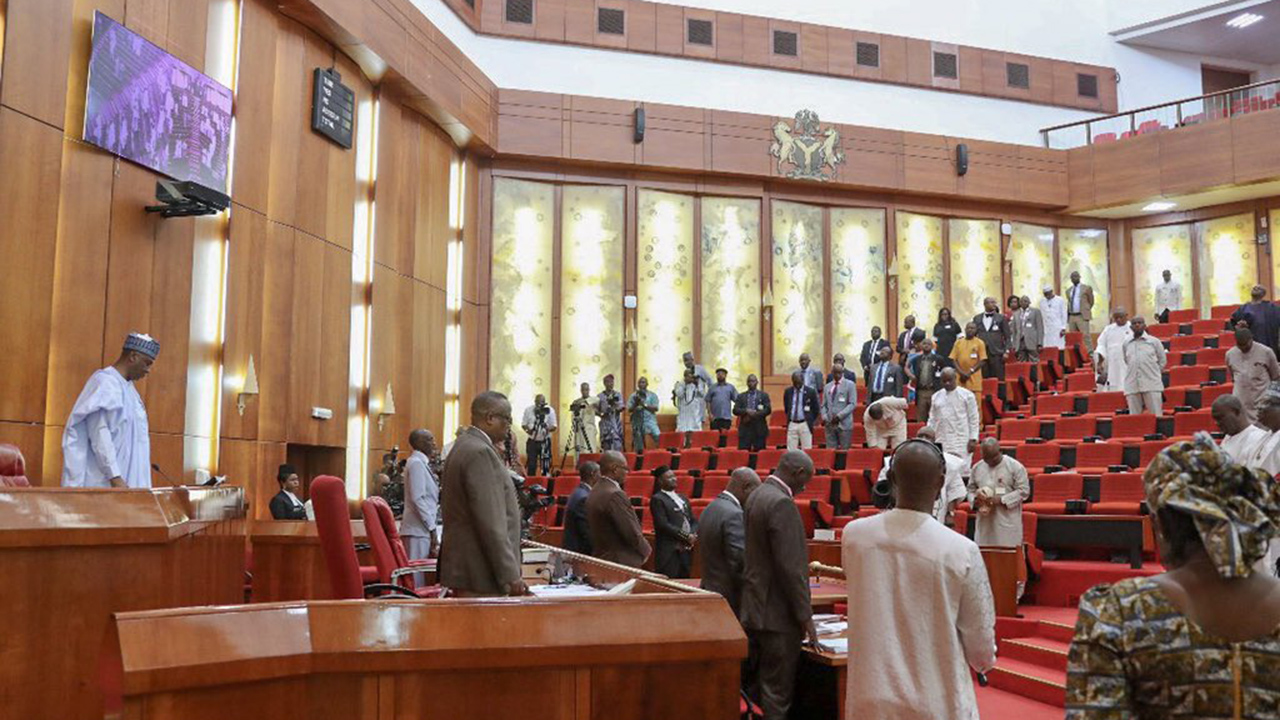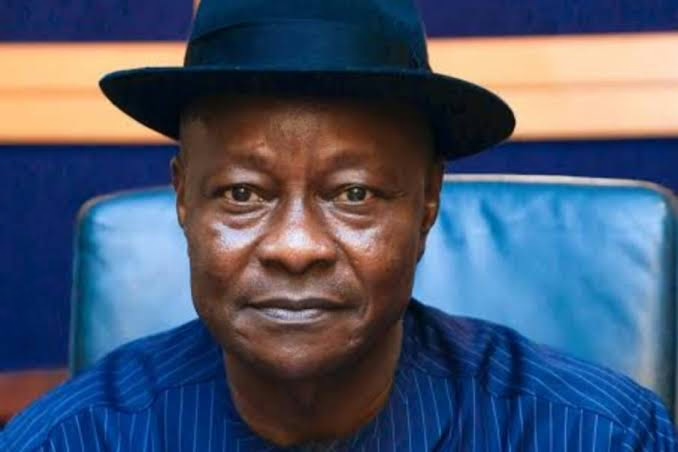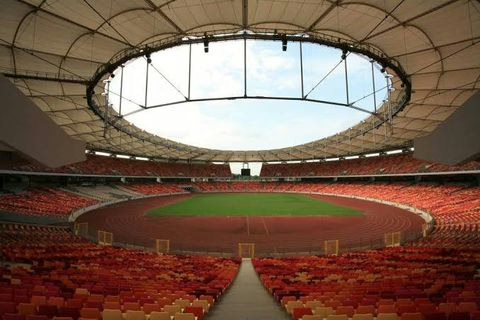Senate yesterday began the process of overriding President Muhammadu Buhari’s veto on the budget timeline bill. It arrived at the decision after adopting the report of a technical committee it set up to study bills rejected by the president.
According to a report by the Guardian , the bill seeks to amend the 1999 Constitution by making it mandatory for the president and state governors to lay budget estimates before parliament, three months to the end of a financial year. It will also compel the parliament to pass the budget before the commencement of the next financial year.
Tagged “SB.733, the Constitution of the Federal Republic of Nigeria, 1999 (Fourth Alteration, No. 28) Bill”, the proposed legislation, which scaled first reading on Tuesday, passed second reading during yesterday’s plenary.
The bill was sponsored by Deputy Senate President Ike Ekweremadu (PDP, Enugu).
Buhari had in 2018 declined assent to the constitution amendment bill on the grounds that Section 2 (b) and 3 (b) of the proposal appeared “not to take full cognisance of the provisions of Section 58 (4) of the 1999 Constitution”.
While rejecting the president’s submission, the David Umaru-led technical committee posited that the bill was not in conflict with the 1999 Constitution. The purpose of the bill, the committee explained, was to ensure that Nigeria reverts to the January to December budget cycle.
The report reads: “It should be understood that this bill seeks to make it mandatory for Mr. President and governor of a state to cause to be prepared and laid before parliament estimates of the revenues and expenditure of the federation for the next financial year, not later than 90 days to the end of a financial year, and for the parliament to pass the Appropriation Bill before the commencement of the next financial year.
“The legislative intent behind this bill is to ensure that we run a normal financial year. From the wordings of the provisions, there was no stipulation that Mr. President must assent to any bill within a specified period.
“Therefore, the provision of Section 58(4), which Mr. President made reference to, does not apply in this regard. On the whole, we respectfully submit that the bill is not in conflict with the provision of section 58(4) of the constitution as implied by Mr. President. It is therefore our concerted view that the Senate should override Mr. President’s veto.”
Section 58 (5) of the 1999 Constitution provides that two-thirds of both legislative chambers of the National Assembly (73 senators and 240 members of House of Representatives) are required to override the president’s veto.
The Senate also passed the Petroleum Industry Governance Bill (PIGB) and six others rejected by Buhari. The bills are: Stamp Duties (Amendment) Bill; National Institute of Hospitality and Tourism (Est.) Bill; National Research and Innovation Council (Est.) Bill; National Agricultural Seeds Council Bill; Agricultural Credit Guarantee Scheme Fund (Amendment) Bill; and Independent National Electoral Commission (INEC) Act 2010 (Amendment) Bill.
Buhari had declined assent, citing reasons that include financial constraints, negative impact on Nigerians, duplication of responsibilities of existing agencies, violations of extant laws and lack of consultation with relevant stakeholders.
The Senate had recently adopted the report of the Technical Committee on Declined Assent to Bills, which worked on the president’s observations and redrafted the affected clauses in the bills.
In withholding assent to the PIGB in August 2018, Buhari had kicked against the provision permitting the Petroleum Regulatory Commission to retain as much as 10 per cent of the revenue generated, and expansion of the functions of the Petroleum Equalisation Fund (PEF).
In the new bill, the Senate agreed with Buhari’s submission and reduced the revenue generated by the regulatory commission from 10 per cent to five. It also expunged the Petroleum Equalisation Fund (PEF) from Part IV of the new bill.
But with less than two months to the end of the Eighth National Assembly, it is unclear whether the bills would be passed, given the fact that the legislations would be transmitted to the House of Representatives for concurrence before being sent to the president for assent.
The PIGB is part of a more comprehensive Petroleum Industry Bill (PIB), one of the longest standing bills in the National Assembly.
It was first introduced to the Assembly in 2008 as an executive bill by the late president, Umaru Yar’Adua. The Sixth National Assembly (2007-2011) failed to pass the bill and it was re-introduced in 2012 by former President Goodluck Jonathan.
In 2014, 47 out of the 360 members of the House of Representatives in the Seventh Assembly (2011-2015) were present when the bill was passed a few hours to the end of their tenure. But it failed to get the constitutionally required concurrence from the Senate.
The current proposal is a private member bill sponsored by the chairman, Senate Committee on Petroleum Upstream, Tayo Alasoadura (APC, Ondo).
The bill seeks to create efficient and effective governing institutions with clear and separate roles for the petroleum industry, establish a framework for the creation of commercially oriented and profit driven petroleum entities to ensure value addition and internationalisation of the petroleum industry, promote transparency and accountability in the administration of petroleum resources of Nigeria, and foster a business environment conducive to petroleum industry operations.
The Senate further passed the Police Reform Bill, subjecting the appointment of the Inspector General of Police (IGP) to confirmation by the upper legislative chamber. It also fixed a five-year statutory tenure for the position.
The approval of the bill was sequel to a report presented by the chairman, Senate Committee on Police Affairs, Tijjani Kaura, (APC, Zamfara North).
Clause 7 of the bill, which states provisions and procedures for appointment and removal of IGPs, notes that the Nigeria Police Council (NPC) shall nominate three persons from a pool of applicants to the president for appointment.
Clause 7 (4c) states that the president shall appoint the IGP from recommended applicants subject to the confirmation by the Senate.
On removal of an IGP, Clause 7 (7c) empowers the NPC to make recommendation to the president. In providing for a five-year single tenure for an IGP, the bill notes that the duration is statutory notwithstanding retirement age.
Meanwhile, the upper legislative chamber yesterday approved a $60 per barrel oil price benchmark and N305/USD exchange rate as key budget assumptions for the 2019 fiscal year. It also recommended 2.3 million barrels per day as daily crude oil production limit.
The budget bill report, which was submitted by the chairman of the appropriation committee, Danjuma Goje, would be considered and passed when the Senate resumes from its Easter break next week.
The report, it was learnt, is in strict compliance with the 2019-2021 Medium Term Expenditure Framework and Fiscal Strategy Paper (MTEF/FSP), which was passed last week.













Leave a Reply